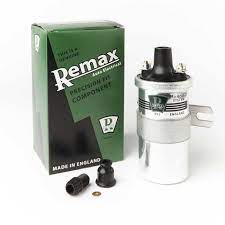| Author | Message | ||
Patrick Francis Frequent User Username: jackpot Post Number: 346 Registered: 11-2016 |
Good evening Could someone tell me what the OHMs of a Bentley MK6 ignition coil should be please? Many thanks | ||
Jeff Martin Frequent User Username: jeff_r_1 Post Number: 239 Registered: 07-2018 |
All the large coils that I have, has been between 5 and 5.4 Ohms. It has more windings on the primary circuit then a modern coil to deal with the long dwell of the duel points. Even a modern coil with 3 Ohms that does not require an external resistor, gets very hot. I'm running an older US made Blue-Streak 3 ohm coil now with a 1.5 Ohm ballast resistor to bring up the value. The problem too is most are Chinese garbage with too thin a gauge of copper wire. | ||
David Gore Moderator Username: david_gore Post Number: 3943 Registered: 04-2003 |
Christopher Carnley has requested I post the following information on his behalf: "I only fit Remax, British made coils now, primary resistance of 3.5 Ohms. The reciprocal of the Ohm is the Mho, and a unit of conductance."   | ||
Bill Vatter Experienced User Username: bill_vatter Post Number: 135 Registered: 09-2004 |
Coil heating can be a problem. If the coil overheats it will quit working. the car will usually stumble and run rough before stopping. Then it will not restart. However, after cooling down, the coil will usually work again. I am not sure what is happening inside the coil to cause that. It appears to me that a heat failure cycle like the above causes permanent damage that is cumulative. Hot coil failure, wait for it to cool, and go again might get you home but all is not well. It will happen again, and next time it will take less heating to make the coil quit. The coil builds magnetic field by current passing through the primary windings. The advantage of dual points is more dwell, which means more time for the magnetic field to build, greater magnetic field, and higher voltage to fire the plugs, It's important at high rpm when the coil has little time for magnetic field build up. So more current and more dwell give higher voltage, but it's a two-edge swoard. More current also means more heating. The heat comes from internal resistance. Therefore, the best coil, other factors equal, would be a coil with low internal resistance and an external resistor instead where the resistance heat won't heat the coil. I acknowledge "other factors equal" isn't realistic, and you also need a quality-manufacture coil. I think cheap coils from a third world country would be a very poor choice. A coil from a high-reputation manufacturer that states, "External resistance required" is what I would look for. I can't tell from the picture, but what Chris showed may be exactly that. |